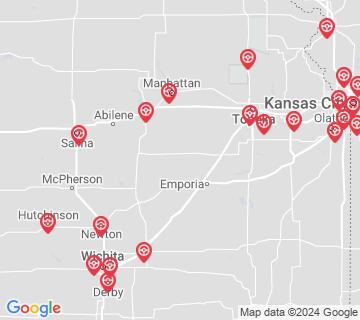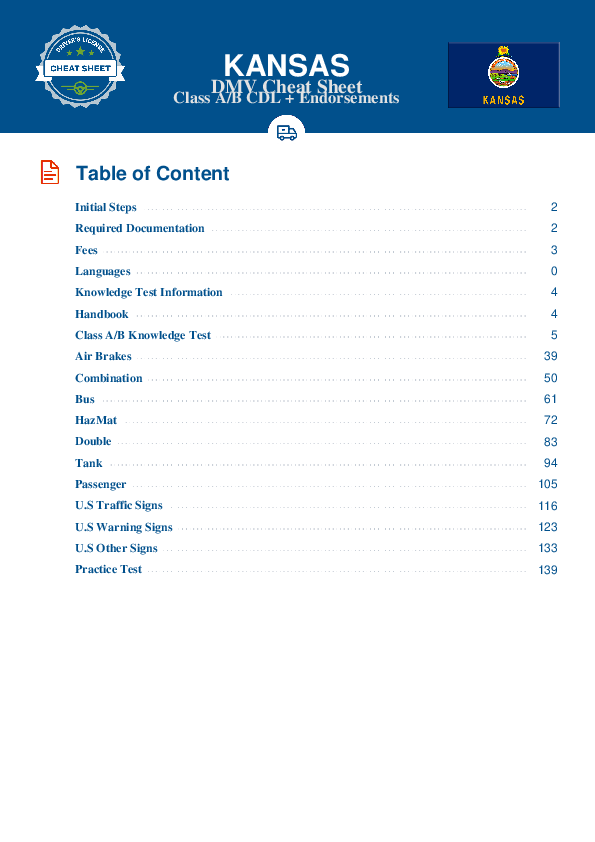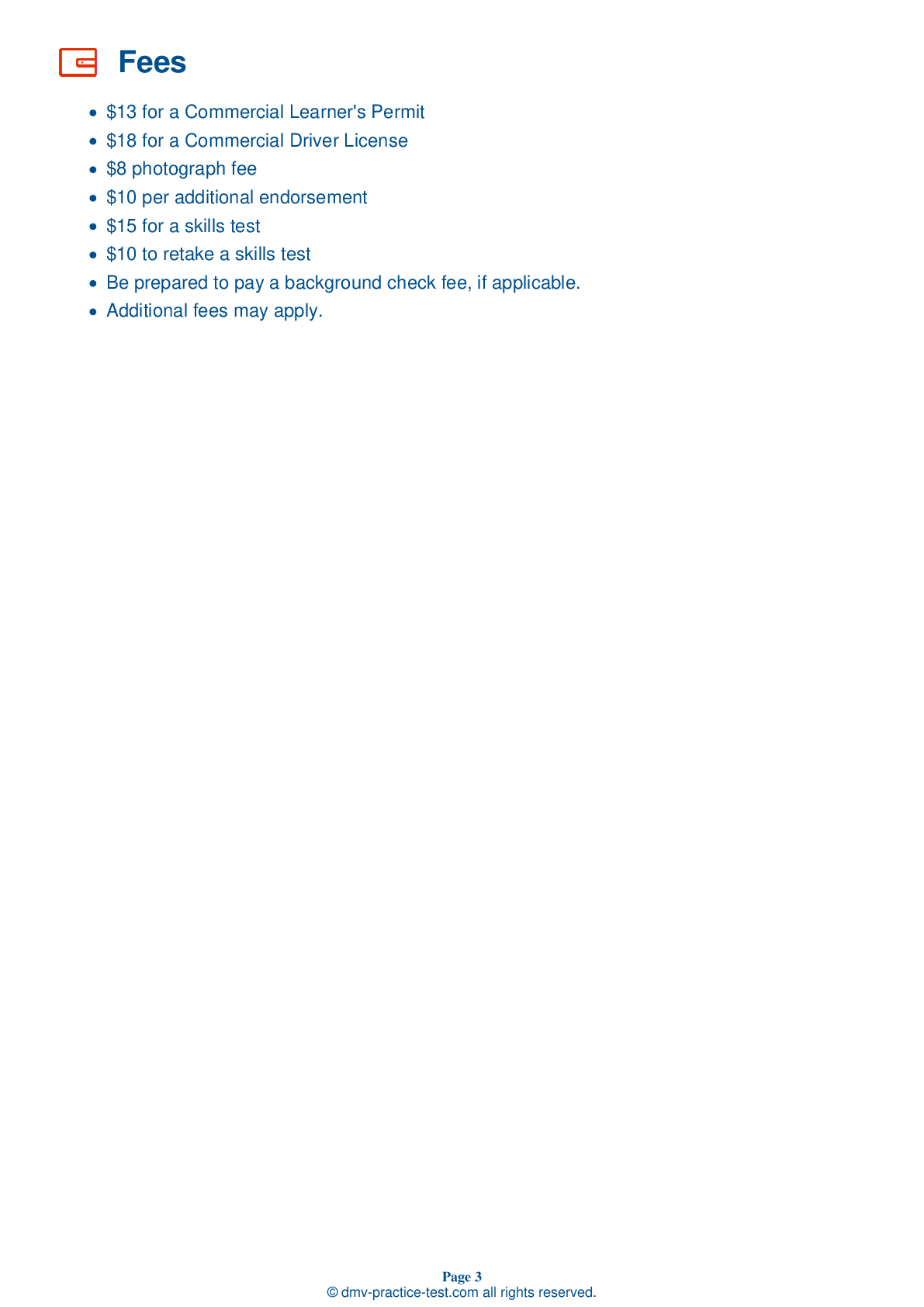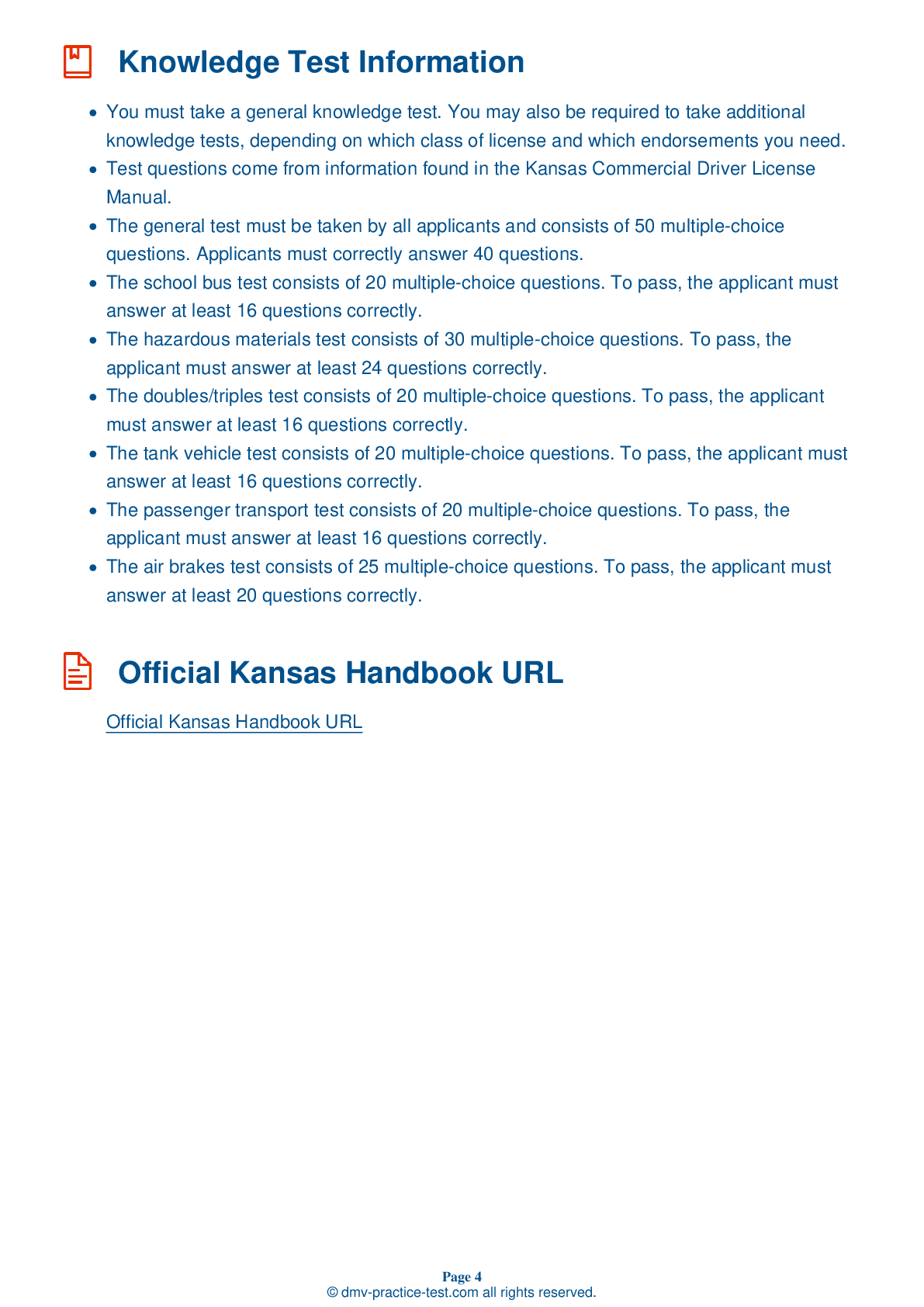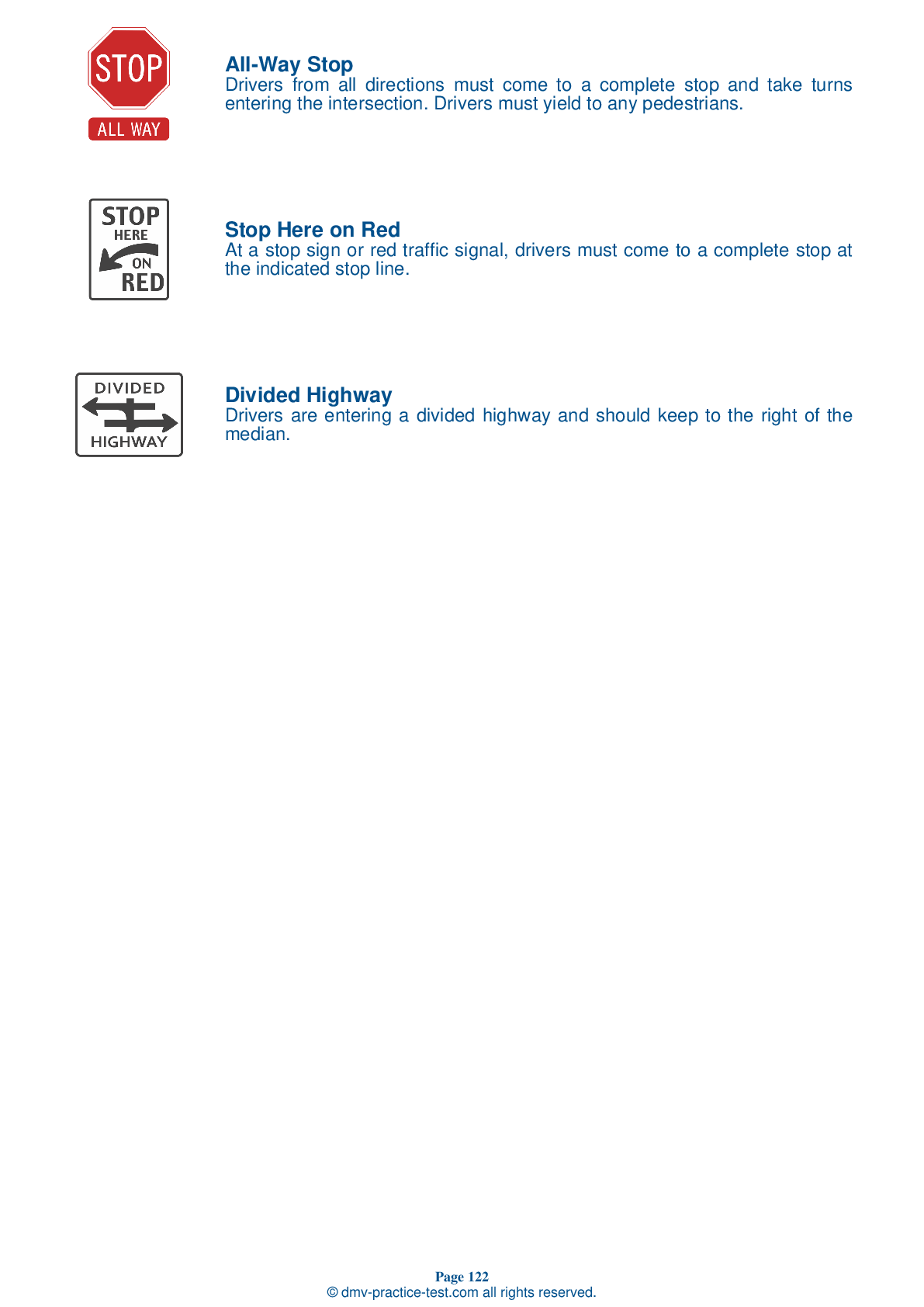HazMat #2
Hazmat Test | Kansas 2026 #2 Page 4 of 5
On our website, we provide FREE practice - CDL hazmat test online! The official exam test consists of several obligatory parts, with all of them checking your knowledge of different blocks of road rules. If you need to obtain a KS CDL hazmat endorsement in 2026, practice as much as possible. Free sample tests published on our website will help you check and improve your knowledge and boost your grades. Please bear in mind that Kansas requirements for issuing a hazmat endorsement for CDL may vary from those established in other states.
30
24
20
19 . If a leak is suspected in a cargo of radioactive material:
The driver should not operate the vehicle until it has been cleaned.
If you are transporting radioactive material and believe there is a leak or broken package in your cargo, you should tell your dispatcher or supervisor as quickly as possible. Do not touch or inhale the material. Do not use the vehicle until it has been cleaned or checked with a survey meter.
20 . When trying to control a minor truck fire, what should you do before opening the trailer doors?
Wait 30 minutes.
If you are experiencing a truck fire, you should not attempt to open trailer doors without first feeling the doors to see if they are hot. If the doors are hot, there may be a cargo fire. Leave the doors closed if there is a cargo fire.
21 . The drive shaft should:
Not be bent.
During the vehicle inspection test, you should check that the drive shaft is not bent or cracked.
22 . Identification numbers assigned to chemicals can be found:
At fuel stations.
The United States Department of Transportation (DOT)’s Emergency Response Guidebook (ERG) lists all hazardous chemicals and their assigned identification numbers.
23 . If cargo containing hazardous materials is leaking, the driver should:
Continue driving to the destination
In the event of a leak in a cargo of hazardous materials, do not continue to drive any longer than is necessary for safety. Continuing to drive would result in a larger area becoming contaminated. Instead, park the vehicle, secure the area, stay with the vehicle, and send someone to get help.
24 . If you are transporting Class 3 flammable liquids and your cargo needs to be moved into another tank, the flammable liquids:
Should be transferred at night.
Flammable liquids should not be transferred from one vehicle to another on a public roadway, unless being moved due to an emergency. Always warn others of the hazards presented by the materials.
Search the best driving school in your neighbourhood
2026 Kansas | Frequently Asked Questions
A CDL Class A license in Kansas is defined as a commercial driver's license that permits the holder to operate any combination of vehicles with a gross vehicle weight rating (GVWR) of 26,001 lbs or more, given that the GVWR of the vehicle(s) being towed is over 10,000 lbs. This typically includes tractor-trailer combinations.
A Class A CDL license in Kansas allows the holder to operate tractor-trailers, truck and trailer combinations, tank vehicles, livestock carriers, and flatbeds. It's also required for driving any combination of vehicles with a Gross Vehicle Weight Rating (GVWR) of 26,001 lbs or more, where the towed vehicle is over 10,000 lbs.
To obtain a Class A CDL license in Kansas, you must be at least 18 years old (21 for interstate driving), possess a valid Kansas driver's license, pass a vision test, and complete a medical examination. You'll also need to pass written knowledge tests and skills tests, which include a pre-trip vehicle inspection, a basic vehicle control test, and an on-road driving exam.
In Kansas, you must be at least 18 years old to qualify for a Class A Commercial Driver's License (CDL) for intrastate driving (within Kansas only). However, you must be at least 21 years old if you plan to drive commercially across state lines (interstate driving).
Specific endorsements are not required for a Class A CDL license in Kansas, but they can enhance your driving privileges. For instance, endorsements for tanker vehicles (N), passenger vehicles (P), school buses (S), and hazardous materials (H) allow you to operate specialized vehicles. To get these endorsements, you must pass additional written and skills tests.
The Class A CDL skills test in Kansas encompasses three parts: a pre-trip inspection, a basic vehicle control test, and an on-road driving test. The tests assess your ability to inspect your vehicle before trips, control the vehicle in various situations, and drive safely in traffic. You must pass all three parts to get your Class A CDL license.
Yes, there can be limitations for Class A CDL license holders in Kansas. These are often referred to as restrictions and may include: not being able to operate a vehicle with air brakes (L restriction), only operating automatic transmission vehicles (E restriction), or only driving within Kansas (K restriction). These restrictions depend on the driver's skills and the type of vehicle used during the test.
In Kansas, the written Class A CDL test is primarily administered in English, as federal regulations require all commercial drivers to read and speak English sufficiently to converse with the general public, understand highway traffic signs and signals, and respond to official inquiries. However, it's best to contact your local DMV office for any language accommodations.
Yes, individuals with disabilities can request accommodations for the Class A CDL written test in Kansas. The Kansas Department of Revenue, Division of Vehicles is committed to providing equal access to its services. If you have a disability and need an accommodation, contact your local DMV office to discuss available options and requirements.
If you fail the Class A CDL written test in Kansas, you're allowed to retake it. However, you must wait until the next business day to do so. There's no limit on the number of times you can retake the test, but each attempt requires a new testing fee. It's advisable to study thoroughly before reattempting.
